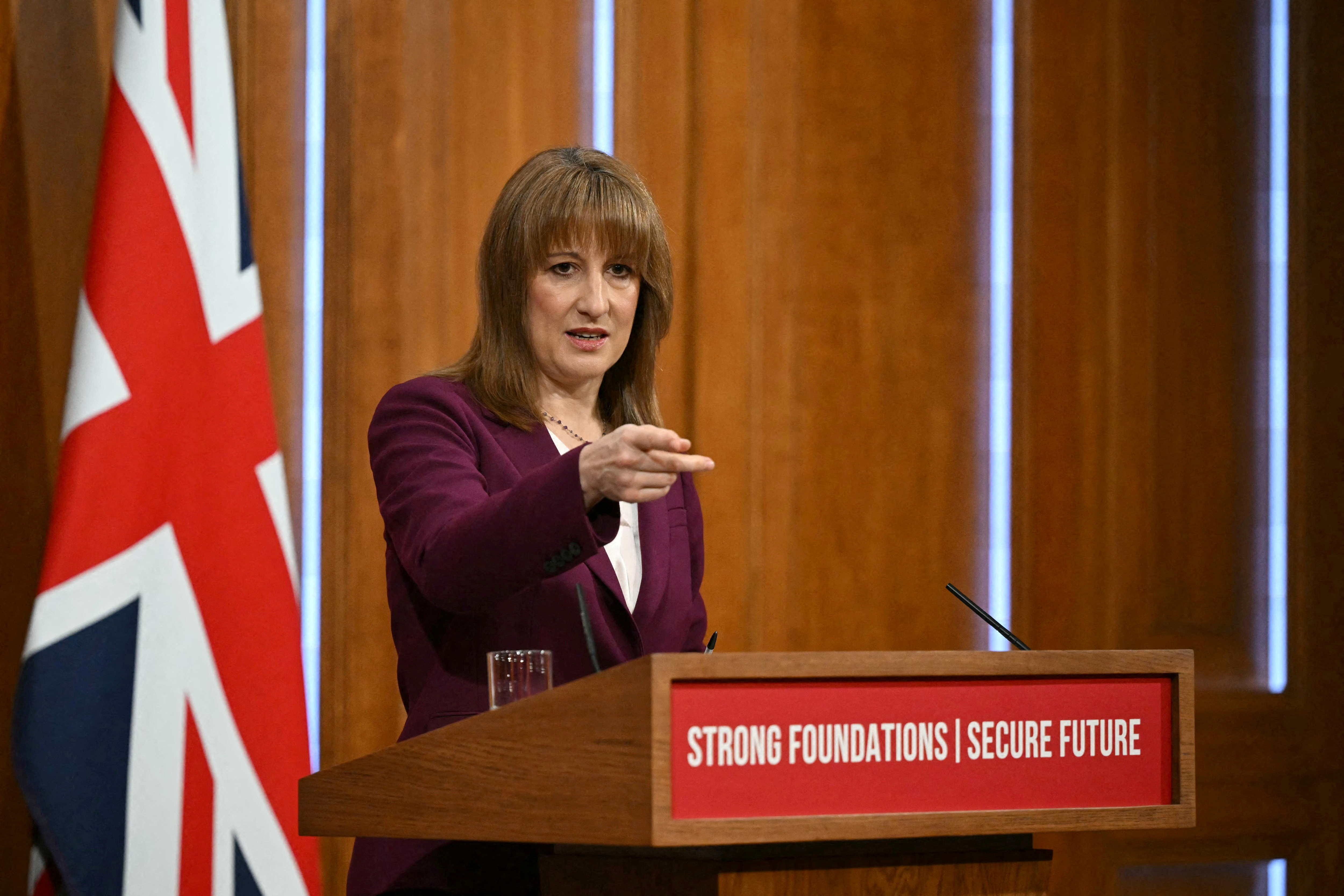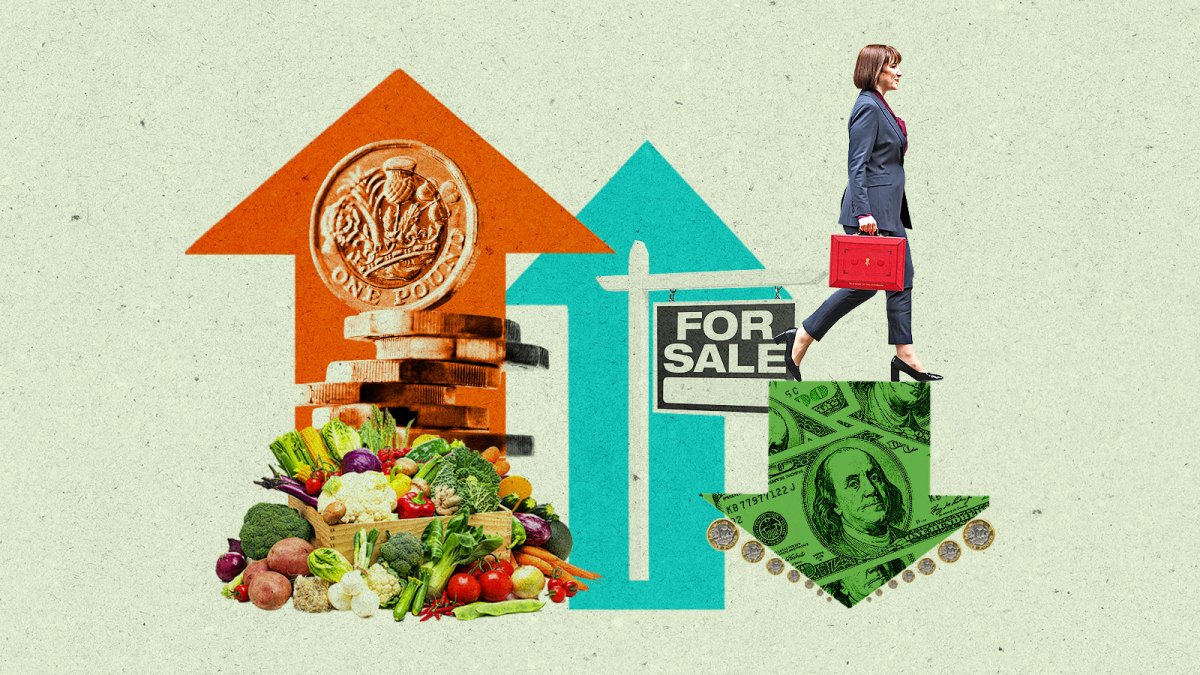Rachel Reeves could become the first chancellor to raise income tax in 50 years as she grapples with stretched public finances, sluggish economic growth and rising unemployment.
Her budget, to be delivered on November 26, may well be the defining moment of this Labour government. Success or failure could even determine whether the chancellor stays in post.
In Reeves’s own words, the economy feels “stuck” for tens of millions of families. Through eight graphs, we examine how it has evolved under her watch.
It is the worst kept secret in Westminster that the chancellor is going to raise taxes substantially at the budget later this month, potentially by as much as £30 billion or £40 billion.
Reeves has told the Office for Budget Responsibility (OBR) that she plans to raise income tax by 2p and cut national insurance contributions (NICs) by 2p, an idea touted by the left-leaning economic think tank, the Resolution Foundation. It would be the first income tax rise since the 1970s.
Income tax has been steadily increasing for several years, albeit by stealth. In March 2021, Rishi Sunak, then chancellor, froze a range of tax thresholds for several years, which meant more people would be pushed into higher tax brackets after they received a pay rise. It is expected that Reeves will extend this freeze to 2030.
The jobs market was hammered by Reeves’s first budget in October last year. Unemployment climbed to a four-year high, the number of payrolled staff went down by more than 120,000 and surveys of the private sector signalled the biggest round of redundancies since the 2008 global financial crisis, excluding the pandemic.
• Income tax raid could cost highest earners £1,800 a year
A year ago the chancellor raised the main rate of employer NICs to 15 per cent from 13.8 per cent. Crucially, she also slashed the earnings threshold that triggers the tax to £5,000 from £9,100, meaning that a wave of low-paid, part-time and young staff were suddenly subject to NICs. Redundancies have been concentrated in this group.

The cost of employment has risen
GETTY IMAGES
These changes, which came into effect in April this year, amounted to a £25 billion tax increase on businesses and are viewed as breaking the spirit of Labour’s promise not to increase income tax, NICs or VAT.
Since Labour won the general election in July last year, inflation has risen from 2.2 per cent to 3.8 per cent, well above the Bank of England’s 2 per cent target.
Prices have been driven upwards by a rapid acceleration in food inflation, which economists have, in part, attributed to supermarkets passing on the cost of the NICs increase. Regulated household bills, such as gas and electricity prices, have also driven inflation higher despite Sir Keir Starmer promising to lower the cost of living in the election campaign.
Economists at the Bank of England said this week that they believed the worst of the latest inflation surge had passed, and forecast that it would decline to 3.2 per cent in March.
One positive development that Reeves can point to is economic growth, which in the first six months of the year was the strongest in the G7. Labour promised in its manifesto to achieve the highest sustained growth in the G7.

However, a large proportion of this growth was underpinned by a sharp increase in government spending. According to forecasts from the OBR set out in March, public spending was on course to be about £1.3 trillion in the latest two fiscal years, up by about £100 billion.
GDP, the key growth measure, is expected to grow by 1.5 per cent this year and 1.2 per cent next year, before accelerating to 1.6 per cent in 2027 and 1.8 per cent in 2028, according to the Bank of England.
The pound has fluctuated wildly over the last year. It dropped rapidly against the dollar heading into 2025 as investors predicted that President Trump would impose punitive tariffs on imports, pushing up inflation and keeping US interest rates high. Such an environment was supportive for the dollar.
Once Trump did announce his “liberation day” tariffs in April, sterling quickly gained momentum, reaching $1.37.
However, the pound has been on a downward trend in recent weeks owing to concerns about tax rises in the budget harming growth and predictions that the Bank of England will lower interest rates sooner than previously expected.
The chancellor has been at pains to point out that the Bank of England has lowered interest rates five times since Labour took office. Borrowing costs have fallen from 5.25 per cent in August last year to 4 per cent. The central bank’s rate-setting committee voted to maintain them at that level this week.
• The Times view: The chancellor has her priorities on tax and workers’ rights the wrong way round
Andrew Bailey, governor of the Bank of England, signalled that he could be swayed to vote for a rate cut in December if inflation falls and financial markets think that, over the long run, rates will end up somewhere between 3 per cent and 3.5 per cent.
The timing of the next rate cut will depend on whether the budget stokes inflation like the last one. Reeves’s unusual speech this week, in which she set out the economic backdrop to the budget, suggested that the government planned only to implement tax and spending policies that do not push up inflation.
House sales have picked up since July last year, aided in the main by two things: a rush to complete purchases before the end of a stamp duty holiday in April and interest rate cuts. Strong wage growth has supported demand in the property market too.
Prices have gradually crept higher, rising from £262,000 in July 2024 to £273,000 in August this year, according to the latest available data from the Office for National Statistics. Rent growth has fallen from record highs in many areas but remains elevated.
• What a property tax shake-up could look like
There have been reports of the housing market being chilled by speculation about tax rises in the run up to the budget. This week, the Bank of England said that demand was “flat” and “that the upcoming autumn budget is weighing on confidence” among buyers and sellers.
Amid warnings of a tax raid at the budget, talk of an IMF bailout and fiscal shortfalls to the tune of tens of billions of pounds, you would think that consumers would be apocalyptically downbeat.

Consumer sentiment has remained steady
GETTY IMAGES
However, according to the long-running GfK survey, confidence has actually held up pretty well over the last year and is nowhere near the record low it fell to in the immediate aftermath of Liz Truss’s mini-budget in September 2022.
Yet households do remain reluctant to spend. According to the ONS, retail sales remain 1.6 per cent below their pre-pandemic levels and people are saving much more than they did in 2019.

